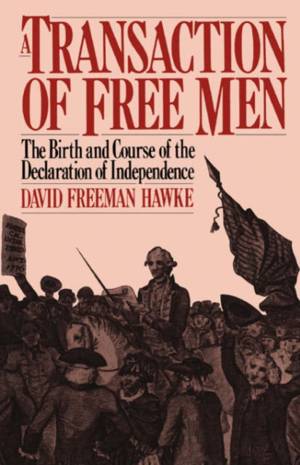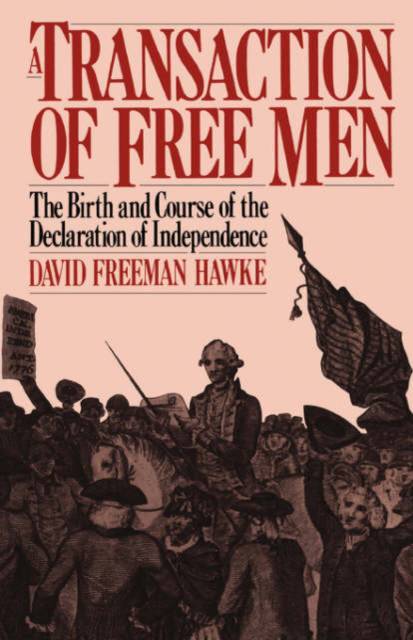
- Retrait gratuit dans votre magasin Club
- 7.000.000 titres dans notre catalogue
- Payer en toute sécurité
- Toujours un magasin près de chez vous
- Retrait gratuit dans votre magasin Club
- 7.000.000 titres dans notre catalogue
- Payer en toute sécurité
- Toujours un magasin près de chez vous
A Transaction of Free Men
The Birth And Course Of The Declaration Of Independence
David Freeman Hawke
Livre broché | Anglais
28,45 €
+ 56 points
Description
The story of the Declaration of Independence--its genesis, drafting, ratification, and influence--is as complex as any great vision and realization. Did it merely sum up the prevailing thought of its day, or was it an advanced expression of uniquely American ideals? Were its signers aware of the Declaration's full revolutionary significance, or did they see it as the rationale for an economic dispute? Such questions face any historian of the period and require an extraordinary control of materials, a sensitive reading of character and text, and a lucid gift for recreating a time more than two centuries ago for scholars and general readers alike. David Hawke possesses all of these qualities in abundance. His portraits of Thomas Jefferson, who wrote the Declaration, and John Adams, who led the fight for its adoption, are wonderfully complex and sound. As he says in his new introduction, "the main thesis [of the book] is that the Declaration could only have been written by Thomas Jefferson, not just because of his talent with words, but also because he, coming from an agrarian South, held ideas about society and government not shared by northerners." A double portrait of men who began as allies, became enemies, and at the end of their lives resolved their antagonism into deep respect and friendship, this book provides fascinating reading for anyone interested in the foundations of the American experiment.
Spécifications
Parties prenantes
- Auteur(s) :
- Editeur:
Contenu
- Nombre de pages :
- 292
- Langue:
- Anglais
Caractéristiques
- EAN:
- 9780306803529
- Date de parution :
- 22-03-89
- Format:
- Livre broché
- Format numérique:
- Trade paperback (VS)
- Dimensions :
- 137 mm x 216 mm
- Poids :
- 349 g







